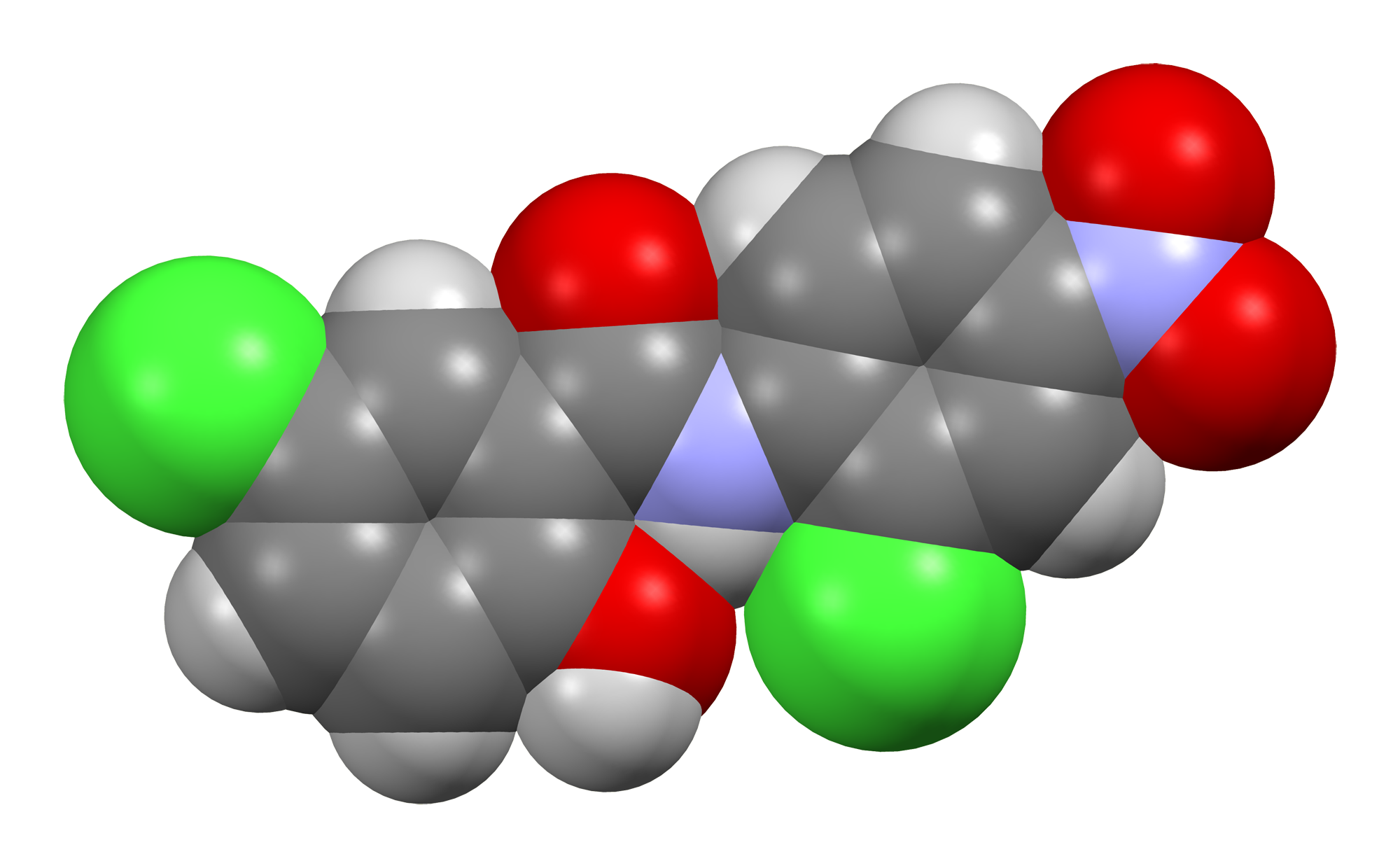| name | Niclosamide |
| classification | Anthelmintic (specifically, cestode/tapeworm) |
| pharmacokinetics | Niclosamide is absorbed poorly from the gastrointestinal tract. It is primarily eliminated in the feces, with minimal metabolism in the body. The drug's action is primarily local on the parasite. No significant accumulation in the body is expected. |
| suggested dosage | Dosage varies depending on the specific tapeworm infection and the patient's weight. Consult with a healthcare professional for appropriate dosage based on the severity of the infection. The standard oral dose for adult humans is typically in the range of 2 grams per day, given as a single dose or in divided doses. *Important note:* Self-treating with niclosamide is not recommended. |
| indications | Used primarily to treat tapeworm infections (cestodes). Examples include *Taenia*, *Diphyllobothrium*, and *Hymenolepis*. Niclosamide is not effective against roundworms or other types of helminths. |
| safety in pregnancy | Limited data is available on the safety of niclosamide during pregnancy. Niclosamide should not be used during pregnancy unless the potential benefits outweigh the potential risks, and under direct supervision of a qualified healthcare professional. The drug's potential effects on the developing fetus are not well understood. *The risk/benefit must be carefully evaluated by a qualified medical professional* |
| safety in breastfeeding | Niclosamide is likely to be excreted in breast milk. The drug's potential effects on the nursing infant are unknown. Niclosamide use is not recommended during breastfeeding unless the benefit to the mother is deemed critical. This should be determined by a healthcare professional. |
| side effects | | 1 | Nausea | | 2 | Vomiting | | 3 | Diarrhea | | 4 | Abdominal cramps | | 5 | Headache | | 6 | Skin rash (rare) | | 7 | Urticaria (rare) |
|
| alternatives | |
| contraindications | | 1 | Known hypersensitivity to niclosamide or any of its components. | | 2 | Severe liver or kidney impairment. |
|
| interactions | Limited data available about significant interactions with other medications. Consult a pharmacist or physician before using with other medications. |
| warnings and precautions | | 1 | Dosage should be strictly adhered to, as instructed by a physician. | | 2 | Patients with pre-existing gastrointestinal conditions should discuss use with a healthcare professional. | | 3 | Monitor for signs of allergic reaction (e.g. rash, swelling) and contact a physician immediately if any arise. | | 4 | Do not self-treat. This medication should only be used under the direct supervision of a healthcare provider who can properly diagnose the condition and determine the appropriate dosage and duration of treatment. |
|
| additional informations | Niclosamide is typically administered as a single oral dose, or sometimes in divided doses over several days. The patient should be instructed to take the medication with a full glass of water, and to report any unusual symptoms to their doctor. The exact course of treatment will depend on the patient's condition and the specific type of tapeworm infection. |
| patient details | |

